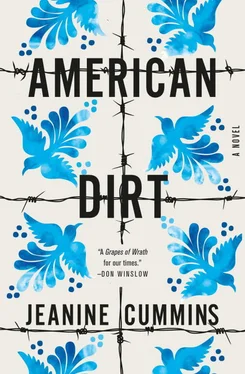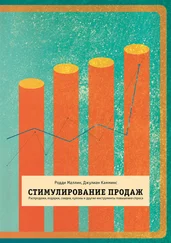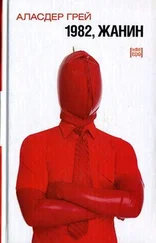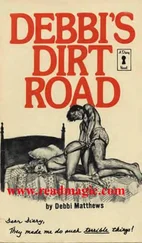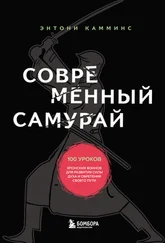Жанин Камминс - American Dirt
Здесь есть возможность читать онлайн «Жанин Камминс - American Dirt» весь текст электронной книги совершенно бесплатно (целиком полную версию без сокращений). В некоторых случаях можно слушать аудио, скачать через торрент в формате fb2 и присутствует краткое содержание. Город: London, Год выпуска: 2020, ISBN: 2020, Издательство: Tinder Press, Жанр: Современная проза, на английском языке. Описание произведения, (предисловие) а так же отзывы посетителей доступны на портале библиотеки ЛибКат.
- Название:American Dirt
- Автор:
- Издательство:Tinder Press
- Жанр:
- Год:2020
- Город:London
- ISBN:978-1-4722-6138-0
- Рейтинг книги:5 / 5. Голосов: 1
-
Избранное:Добавить в избранное
- Отзывы:
-
Ваша оценка:
- 100
- 1
- 2
- 3
- 4
- 5
American Dirt: краткое содержание, описание и аннотация
Предлагаем к чтению аннотацию, описание, краткое содержание или предисловие (зависит от того, что написал сам автор книги «American Dirt»). Если вы не нашли необходимую информацию о книге — напишите в комментариях, мы постараемся отыскать её.
FEAR KEEPS THEM RUNNING.
HOPE KEEPS THEM ALIVE.
Vivid, visceral, utterly compelling, AMERICAN DIRT is the first novel to explore the experience of attempting to illegally cross the US-Mexico border. cite empty-line
9
empty-line
11 empty-line
14
American Dirt — читать онлайн бесплатно полную книгу (весь текст) целиком
Ниже представлен текст книги, разбитый по страницам. Система сохранения места последней прочитанной страницы, позволяет с удобством читать онлайн бесплатно книгу «American Dirt», без необходимости каждый раз заново искать на чём Вы остановились. Поставьте закладку, и сможете в любой момент перейти на страницу, на которой закончили чтение.
Интервал:
Закладка:
The migrants stay in the positions El Chacal assigns for them, so the coyote is first, followed by Choncho and Slim, followed by Beto and Luca, Lydia, the sisters, and then Marisol. The rest of the men are at the rear. They move north at a pace that’s rapid enough to be almost startling, and Lydia tries to watch Luca’s nearly invisible outline ahead. The fresh air is cold moving through their lungs, and after those fidgety days in the apartment, it’s exhilarating to be moving their bodies northward across the starlit earth. There’s no talking, but their footfalls against the uneven terrain and their bodies’ small sounds of exertion take on the qualities of conversation. Everyone concentrates on not falling, not stepping wrong, not bumping into the person in front of them. They stay alert to the real danger of twisting an ankle. They try, but mostly fail, to suppress their fear of the unseen, omnipresent Border Patrol.
There’s no fence in this stretch of desert because there’s no need of one. They are roughly twenty miles east of Sasabe and twenty miles west of Nogales, where the Pajarito Mountains serve as the border fence. It’s cold. Luca is wearing every item of clothing they bought at that Walmart in Diamante before they left Acapulco: jeans, T-shirt, hoodie, warm jacket, and thick socks. His new boots are tied and double-knotted. Papi’s baseball cap is stowed carefully in the side pocket of Luca’s pack, and he’s wearing the warm stocking hat and scarf he got from the old lady in Nogales, but even with all that, even though he feels damp with sweat along his spine, his nose and fingers are freezing. He wishes they’d thought to buy gloves, too. Sometimes El Chacal makes the quick whistle, and they all stand absolutely still and silent until he gives the double-click command for them to continue. There’s one place where Luca can hear the electronic hum of some unseen machinery. Choncho falls into step beside Luca and points up to a blinking red light mounted high on a post nearby. They’re almost directly beneath it. It swivels. And when the blinking red eye looks away, El Chacal makes the double-click, and they move very quickly, almost at a run through the darkness, until they are up and over a small ridge, beyond the sweep of that swiveling, mechanical eye.
‘Congratulations,’ Choncho whispers loudly to Luca. ‘You’ve just outsmarted your first United States Border Patrol camera.’
Luca grins in the dark, but Lydia feels a lurch in her stomach, a passing grief at what that must mean.
‘We are in the United States already?’ she whispers.
‘Yes,’ Choncho says.
Lydia expected the crossing would be momentous. That it would happen in an instant, that she would, in the space of one footstep, leave Mexico and enter the United States. She expected to be able to pause, however briefly, so she might look back and reflect, both physically and metaphorically, at what she’s leaving behind: the omnipresent fear of Javier and his henchmen. After eighteen days and sixteen hundred miles of endurance, she wants to feel that she’s slipping his noose. But she wants to look further back than that, too, to her life before the massacre, to her happy childhood in Acapulco. The orange bathing suit she wore every day during the summer of her sixth birthday. Diving from the cliffs at La Quebrada when she was a teenager. Walking on Barra Vieja with her father when she was still small enough to hold his hand without embarrassment. The million endearing grievances of her mother. College, Sebastián, the bookstore. Holding Luca outside her body for the first time. Lydia expected there would be a moment when these notions would flood through her, all at once, like a small death. A portal. She’d hoped, like one of those desert rattlesnakes, to shed the skin of her anguish and leave it behind her in the Mexican dirt. But the moment of the crossing has already passed, and she didn’t even realize it had happened. She never looked back, never committed any small act of ceremony to help launch her into the new life on the other side. Nothing can be undone. Adelante.
The sky is clear and there are stars overhead, but the moon is new, so even when it rises, it offers no light to their path. Ideal conditions for crossing, the coyote assures them as they stumble through the dark. For an hour they trudge through the desert without speaking. At eleven o’clock, they take shelter beneath a rocky outcrop because, the coyote explains, these are prime border patrolling hours, and la migra is thick in this sector. He tells them to rest, but none of them do. They sit in fear, their eyes blinking like inadequate lamps. They pass three hours that way, listening to the foreign sounds of the desert all around them. It’s terrifying to hear grunting and snuffling and clicking and shrieking, sometimes at a distance, sometimes rather close, and to not be able to see what kinds of creatures are creating all that racket. It’s a queer, vulnerable feeling to sit without armor among nocturnal animals, knowing they can see you and smell you and feel you there. Knowing that you’re blind to their presence should they decide to approach. Every one of those migrants prays while they wait. Even Lorenzo remembers that he once believed in God.
CHAPTER THIRTY-ONE
Shortly before two o’clock in the morning, El Chacal gets them moving again. He wants to make camp before the morning twilight begins to ascend. He’s walked this exact route dozens of times before. He knows just where they’re going and how long it takes to get there. He knows they can make do with a lot less water if they avoid walking during the heat of the day. But now that it’s late spring and the nights are growing shorter, he also knows there’s little time to spare before the light comes. He pushes the group to the top of their pace. They’re probably three miles north of the border but still hours from safety, from the nearest town, by the next time El Chacal makes the whistle. This time Beto, half-asleep on his feet, stumbles into Slim in front of him, and they tumble into a small heap together on the desert floor. Beto giggles and apologizes, but El Chacal snaps at him and puts one finger against his lips. Slim claps a meaty hand over Beto’s mouth to ensure silence.
Ahead, at the foot of a hill they’re nearly halfway down, Luca can see the faint white trace of a road, winding its way snakelike through the landscape. They’re standing beneath a huddle of scrappy trees, but below them, there’s little to no cover until the far side of the road. Several hundred yards to the right, four pickup trucks are parked together.
‘ Carajo, ’ El Chacal says out loud.
Up to now, Luca has rather enjoyed this one perk of having his whole life annihilated: he’s suddenly privy to a world where grown-ups sometimes curse out loud. He’s even tried some of those words out on his own tongue, but in this instance, hearing El Chacal say carajo when he sees those pickup trucks makes Luca feel deeply unsettled.
‘What are they doing here at this time of night?’ Choncho asks the coyote quietly.
El Chacal shakes his head. ‘I don’t know. There’s a trailhead there.’ He points to the far side of the road. ‘Sometimes we hike that way if there’s no one here. It’s a little-used trail. But this…’ The coyote spits into the dirt at his feet. ‘These are not day hikers.’ El Chacal wears a pair of binoculars from a length of cord around his neck, which he lifts and squints into now. It’s too dark to see anything except the outline of the trucks, and an interior cab light that’s been left on inside one of them. It’s still very dark here, but the blackness is beginning to diffuse into a range of discernible grays. Soon the light will follow. El Chacal gathers the migrants out of their line and into a clump so he can speak to them all at once.
Читать дальшеИнтервал:
Закладка:
Похожие книги на «American Dirt»
Представляем Вашему вниманию похожие книги на «American Dirt» списком для выбора. Мы отобрали схожую по названию и смыслу литературу в надежде предоставить читателям больше вариантов отыскать новые, интересные, ещё непрочитанные произведения.
Обсуждение, отзывы о книге «American Dirt» и просто собственные мнения читателей. Оставьте ваши комментарии, напишите, что Вы думаете о произведении, его смысле или главных героях. Укажите что конкретно понравилось, а что нет, и почему Вы так считаете.
